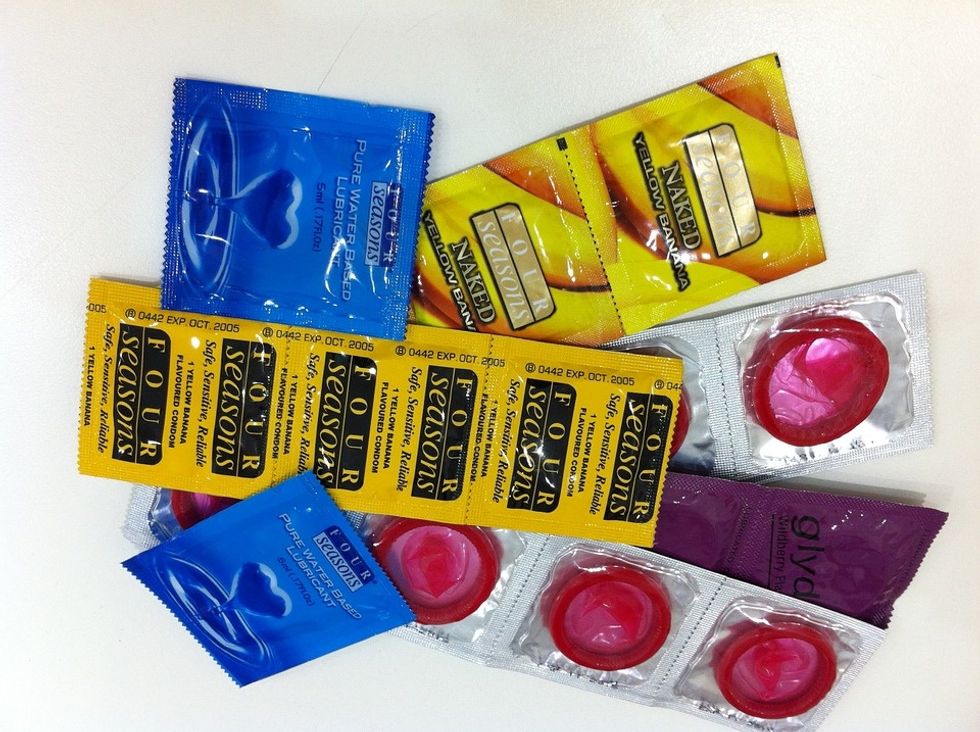Arizona State University is offering $20 Sexually transmitted infections (STI) tests with the rise of sexually transmitted diseases (STD) in the United States.
STIs are infections that are passed from one person to another during any form of sexual activity.
Several of the most common STIs have no symptoms or they have mild signs that can be easily overlooked. Therefore, the sexually transmitted bacteria or viruses may or may not result in an STD according to the American Sexual Health Association.
Combined cases of gonorrhea, chlamydia and syphilis have increased in the U.S. according to a Sexually Transmitted Disease Surveillance Report by the U.S. Center for Disease Control and Prevention (CDC).
"Combined they total 2.4 million infections that were diagnosed and reported just in last year alone," said Elizabeth Torrone, a CDC epidemiologist who worked on the report, told CNN on Oct. 8, 2019.
According to the 2018 STD Surveillance Report, Arizona had 40,807 reported cases of chlamydia, 12,870 reported cases of gonorrhea, and 1,047 reported cases of syphilis.
Arizona's ranks compared to the rest of the states are:
- 16th for reported chlamydia cases with a rate of 581.6 per 100,000 population
- 19th for reported gonorrhea cases with a rate of 183.4 per 100,000 population
- 5th for reported syphilis cases with 14.9 per 100,000 population
This means at ASU, which had a population of 73,000 students in 2018 according to ASU Now, there was an estimated total of 779.9 reported cases of gonorrhea, chlamydia, or syphilis which is approximately 2% of Arizona's total reported cases last year.
With the rise of STDs, it is important for ASU students to know what options they have to prevent and treat them.
ASU Health Services currently offers STI tests for chlamydia, gonorrhea, syphilis, and even HIV on all four campuses.
Testing can be scheduled with a provider to discuss a student's questions and determine what test is best for them, but walk-ins, where the patient chooses what they can be tested for, are welcomed.
A student does not need to have insurance to be tested, seeing as each test has a fee of $20.
Women are less likely than men to have symptoms of these common STDs, therefore they are less likely to seek care, according to ASHA.
If left untreated STIs and STDs can lead to several health problems including infertility and problems during pregnancy.
The CDC recommends all sexually active women under 25 should be tested for gonorrhea and chlamydia every year. The CDC also recommends all sexually active gay and bisexual men should be tested at least once a year. But people who have multiple partners should be tested frequently.
The cause of the rise is undetermined.
Torrone told CNN it is important to remember that the number may be a result of more people getting STD screenings, but "steep and sustained increase" shows that may not be the only reason.
"Some of that increase in incidence may be due to change in sexual behaviors," Torrone told CNN.
Researchers found, in a study about the factors affecting condom use among college students in south-central Kentucky, among sexually active students approximately half do not use condoms when having sexual intercourse. The study also found approximately 95% of students engaging with oral sex do not use a condom either.
Lance Lim, a second-year nursing student and Barrett, the Honors College Senator for ASU's Undergraduate Student Government Downtown, said health services has a bowl in their waiting areas full of free condoms.
Lim also said USGD is also developing a proposal to start a free condom program.
"It's important to offer free condoms as it encourages all types of students, no matter their sexuality or gender, to practice safe sex habits," Lim said.






 StableDiffusion
StableDiffusion StableDiffusion
StableDiffusion StableDiffusion
StableDiffusion Photo by
Photo by  Photo by
Photo by  Photo by
Photo by 
 Photo by
Photo by  Photo by
Photo by  Photo by
Photo by  Photo by
Photo by  Photo by
Photo by 









